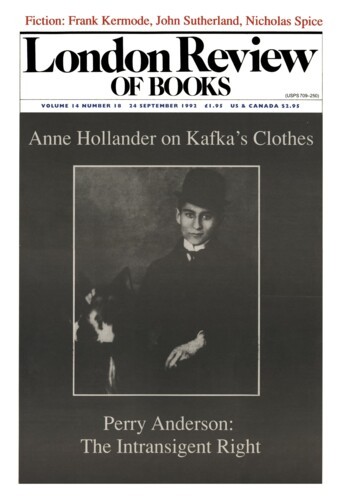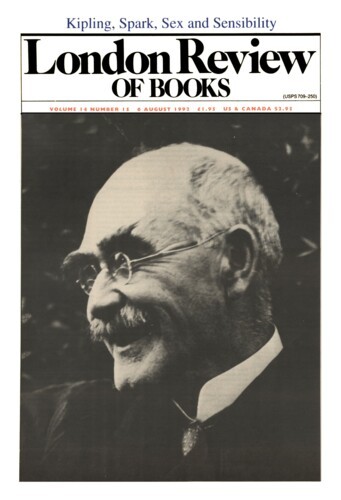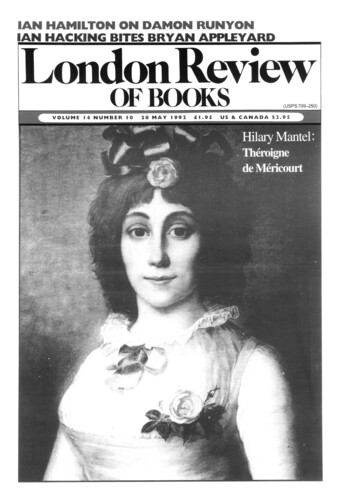On the Salieri Express
John Sutherland, 24 September 1992
Britain’s two leading campus novelists have long broken out of the small worlds mapped in Eating people is wrong and The British Museum is falling down. David Lodge’s latest, Paradise News, crosses at least ten time zones from Rummidge, over the Pacific Rim, to Hawaii. Doctor Criminale clocks up fewer frequent-flyer miles, but short-hauls hectically. The narrative opens in London, flies to Vienna, boards the Salieri Express for Budapest, then chuffs on to Milan, from where it cruises to a luxurious island on Lake Como, then to Lausanne. A brief interlude on Lake Geneva is followed by a long jaunt to Buenos Aires. A climax is reached in Brussels, ‘the heart of our brave new Europe’. An epilogue follows in ‘Schlossburg’, Southern Germany, site of one of the four conferences that feature in the novel. At Schlossburg, Henri Mensonge, scheduled to speak on the totally deconstructed self, fails to arrive: Bradbury loves a donnish joke. It all winds up with a postscript set in Norwich. At a staid University Teachers of English get-together George Steiner, Frank Kermode and Seamus Heaney do their party pieces and a novelist – the author of Doctor Criminale, we must suppose – reads from his upcoming work, ‘whose ending he seems not to know’. The publisher’s blurb laconically informs us that Bradbury lives in Norwich and ‘travels a good deal.’’





